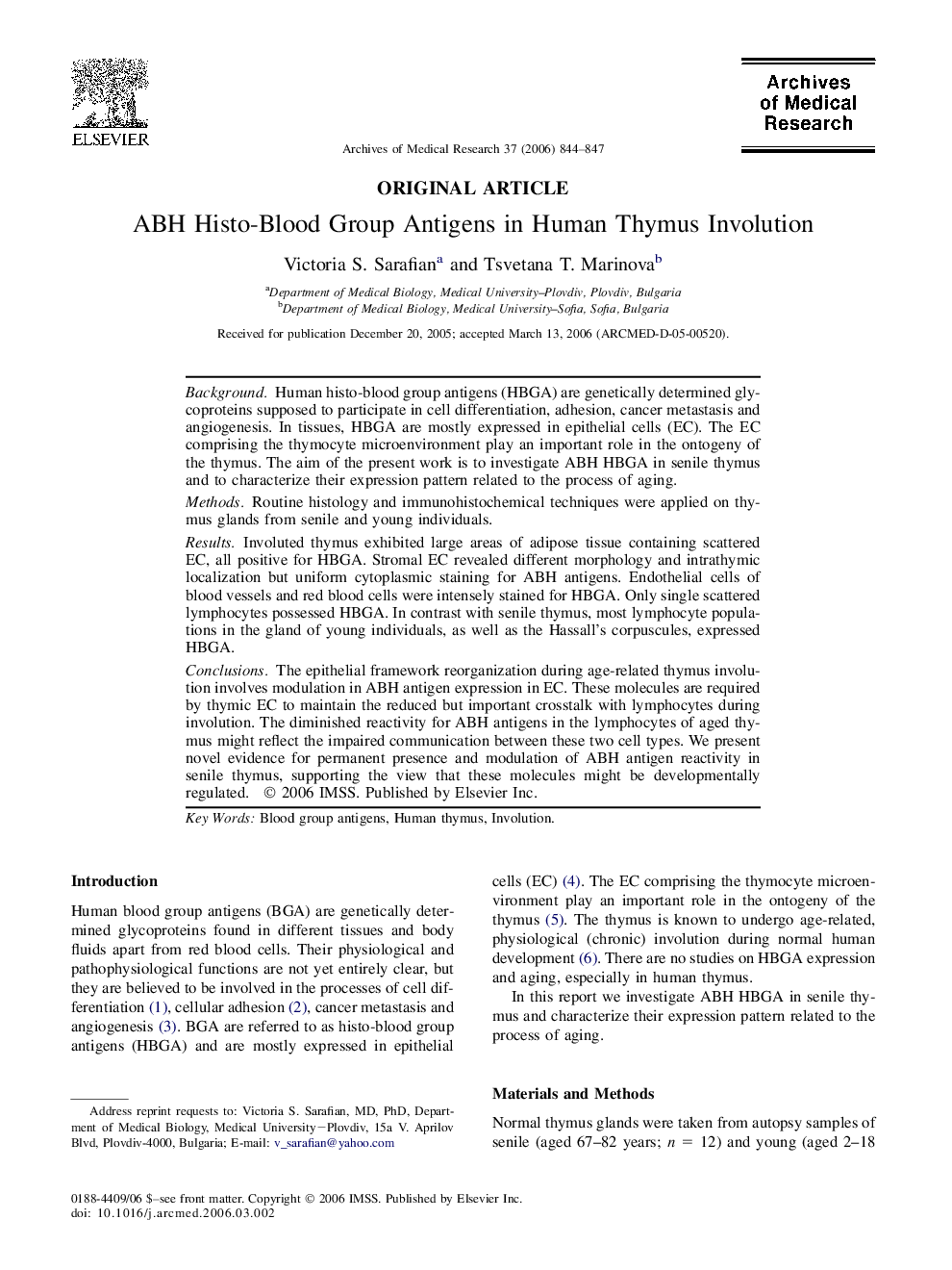| Article ID | Journal | Published Year | Pages | File Type |
|---|---|---|---|---|
| 3447513 | Archives of Medical Research | 2006 | 4 Pages |
BackgroundHuman histo-blood group antigens (HBGA) are genetically determined glycoproteins supposed to participate in cell differentiation, adhesion, cancer metastasis and angiogenesis. In tissues, HBGA are mostly expressed in epithelial cells (EC). The EC comprising the thymocyte microenvironment play an important role in the ontogeny of the thymus. The aim of the present work is to investigate ABH HBGA in senile thymus and to characterize their expression pattern related to the process of aging.MethodsRoutine histology and immunohistochemical techniques were applied on thymus glands from senile and young individuals.ResultsInvoluted thymus exhibited large areas of adipose tissue containing scattered EC, all positive for HBGA. Stromal EC revealed different morphology and intrathymic localization but uniform cytoplasmic staining for ABH antigens. Endothelial cells of blood vessels and red blood cells were intensely stained for HBGA. Only single scattered lymphocytes possessed HBGA. In contrast with senile thymus, most lymphocyte populations in the gland of young individuals, as well as the Hassall's corpuscules, expressed HBGA.ConclusionsThe epithelial framework reorganization during age-related thymus involution involves modulation in ABH antigen expression in EC. These molecules are required by thymic EC to maintain the reduced but important crosstalk with lymphocytes during involution. The diminished reactivity for ABH antigens in the lymphocytes of aged thymus might reflect the impaired communication between these two cell types. We present novel evidence for permanent presence and modulation of ABH antigen reactivity in senile thymus, supporting the view that these molecules might be developmentally regulated.
